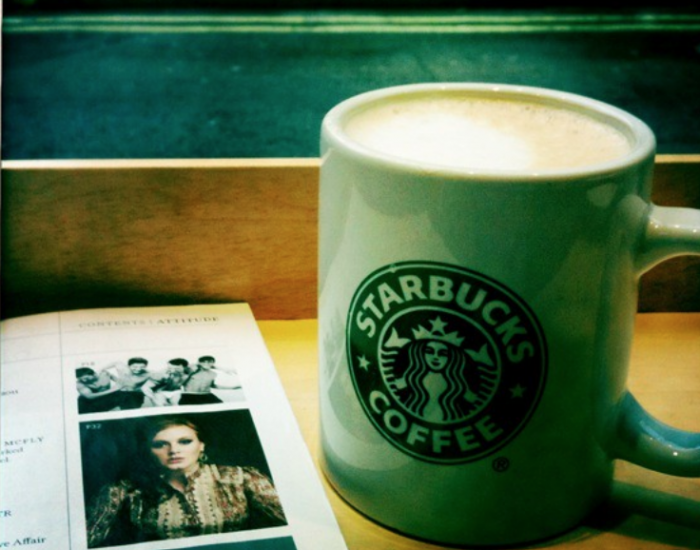Don’t we all love good coffee?
It’s one of the world’s most desired beverages.
We get up in the morning and first thing we have before we go ahead with our day is coffee.
We enter the office, but not without grabbing a coffee first. We have Zoom meetings with coffee. We meet friends for coffee. We discuss projects not without having…yes, a coffee.
We live in a coffee culture.
Coffee is a phenomenon—it’s the black motor that keeps us going and brings us together.
When I was little, television ads used to call milk the “white motor.” They proclaimed we need milk in our lives to stay healthy. The big dairy companies showed happy and healthy cows in the meadow, grazing super green grass—a scenery of peace and happiness.
We were—and still are—brainwashed that milk is healthy for our bodies. The truth about milk and how it is produced in factory-farmed cows on such a massive scale to meet the consumer’s demand is a miserable story. As soon as we find out about this sad truth, we never want to taste it again.
Hell no, it isn’t the white motor that the world keeps spinning.
It’s strong, tasty, chocolaty, flowery, nutty, dark, quality coffee. Coffee is the black motor.
I remember when I visited New York in March 2001. I stood on top of the Twin Towers, amazed by the dazzling height. I was overwhelmed by the city’s never-ending energy, the politeness of the people, the rich pancakes with maple syrup, and the black coffee that the friendly Israeli waitress kept pouring for us.
It was cold and snowy, so we wanted to get a warm drink while we hopped on a bus to see the city. My friend took me to Starbucks, and I couldn’t believe my eyes…so many options. Hazelnut coffee with skimmed milk was her favorite, so of course—as besties do—I needed to try this.
After that trip to New York, I always wondered when we would have a Starbucks in the Netherlands. It took some years, but now in every Dutch big city, train station, and airport, you’ll find a Starbucks. You could say Starbucks has become a Dutch phenomenon.
However, we pay around four dollars for a black coffee at Starbucks, while the small farmer across the ocean cultivates these treasures for us, handpicks the beans, and lives in poverty. It’s just mind-blowing and unacceptable.
Did you know that super low coffee prices keep on fluctuating, and climate change is making it harder and harder for coffee farmers to keep their heads above water?
The world consumes about 500 billion cups every year. Coffee is grown by nearly 125 million farmers across Africa, Asia, and Latin America. Eighty percent of the world’s coffee is grown by 25 million smallholding farmers who are currently at risk of losing their livelihoods.
Places like Colombia—which once had the perfect climate to grow Arabica coffee—are changing. Since 1980, areas where coffee grows in Colombia have become 1.2 degrees warmer by greenhouse gas emissions, which has already impacted the plants that have been overheating and producing lower quality beans. Scientists say temperatures will increase further and regions growing coffee everywhere will be affected.
A recent study estimates that by 2050, the amount of land that can sustain coffee cultivation will be reduced by 50 percent, and 60 percent of wild coffee species could be at risk of extinction because of climate change.
Coffee—Colombia’s largest agricultural export—is indirectly responsible for the livelihood of two million Colombians and now is uniquely vulnerable to climate change. Unpredictable, extreme weather, changing seasons, pests, and soil quality reduction make it extremely difficult to cultivate coffee.
Planting shade trees that keep the plants cooler and stabilize the soil, moving crops uphill where it’s cooler, or switching to more resilient coffee plants are ways for coffee farmers to adapt to climate change.
But many Colombian coffee farmers don’t have the money to take these measures, as there’s no international coffee agreement anymore that stipulates a minimal price for trading the coffee. Prices keep on fluctuating and they’re even below what many farmers need to break even.
So when we support Starbucks—or other big coffee shops chain—and buy overpriced coffee, the coffee farmer who grows and takes care of the coffee plants is in deep trouble.
Some Colombian coffee farmers were forced to replace the coffee with other crops—such as bananas—and stopped cultivating coffee, as they couldn’t lose any more money.
A coffee farmer said in an interview with researchers:
“The biggest challenge is the matter of pricing. The price at the national level is not profitable. The coffee is good and profitable from the port and beyond. There are a lot of intermediaries from there onward. Those who do the true work of producing the best coffee in the world are not receiving compensation. I see this as one of the things that most affects us, but also climate change.”
Here’s what we can do other than minimizing our greenhouse gas emissions:
>> We should support our local coffee roaster and buy fair trade organic beans. If not, buy sustainable fair trade coffee in the supermarket (check the label).
>> Search for cafés in town where they serve “ethical” coffee—coffee for which the farmers received the price they deserved (this is guaranteed because the coffee farmer directly sells to the coffee roaster and not to intermediates who earn most of the revenues).
On the Balearic Islands where I live, I have found two sustainable coffee roasters supplying their coffee to restaurants and shops across the islands and selling directly to customers (they have their own cafés as well).
A global coffee crisis is looming on the horizon.
An entire culture built around coffee will come to an end if nothing changes—we can’t let it happen.
It would be a grey world without coffee, not only for the coffee farmer, but also for you and me.
~


 Share on bsky
Share on bsky





Read 7 comments and reply